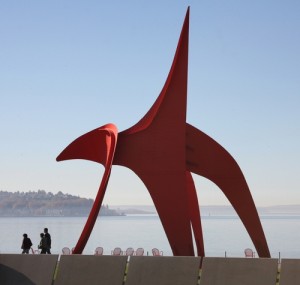Meditation on the Divine Blueness with Two Pop Songs
Rishikesh, India
It’s just that in “My Sweet Lord” George Harrison
sounds so Jesusy, with his platoon of earnest handclappers
and strummers on backup, transparent
like the Maranatha choruses of my childhood
slapped verse by verse onto the overhead projector.
And so I start to think it’s really still 1968 here.
I got the song’s joke the first time, but here
I hear it for myself—in the Rishikesh German Indian
Chinese Israeli Continental Bakery—Hare Krishna
is just two syllables away from Hallelujah
and “My Sweet Lord” is not even two notes away
from “He’s So Fine” (doo lang doo lang doo lang)
and Jesus is just two notes away from Krishna
but in flesh-colored makeup, too shy to show us
his true blue skin. It’s 1968, and the Beatles
are decked in saffron garlands,
posing in a row around the Maharishi,
this gleaming green river behind them,
under a god’s skin blue February sky. It’s 1968
and I’m staring at the same green February water, wishing
the Australians upstairs would just
put the damn sitars away. Any minute now
it’ll be 1971, and George’s new backup singers
will get out their tambourines and start clapping
like some scruffy kids picked up at a beachside revival, squinting
at the transliterated mantras Rama Rama Hare Hare.
It’s 1971 and—really, I’m not stoned—the Chiffons
are suing George Harrison for royalties
(doo lang doo lang doo lang) and incidentally, Krishna
is suing Jesus because he thought of incarnation first.
Jesus swears it was an accident; he didn’t mean to copy,
but the court doesn’t care. And anyway, it’s 1975 now and my dad,
long-haired, is sitting cross legged in a work shirt
and bell bottoms with a guitar
on somebody’s living room floor in Virginia,
strumming the same chords, a mimeographed
scripture song. I really wanna see you Lord, but it takes
so long my Lord. It’s 1975 and the Chiffons are recording
My Sweet Lord (doo lang doo lang doo lang)
as a joke: the magic’s over. We missed the real thing.
I know there are so many Indias, but this is one
of mine. It’s 1975 and night is falling
on the hill above the bakery, where the hostel
owner—just a girl—leads us into a room
the color of Krishna, the color of Shiva’s throat
when he swallowed the poison. There we lay down
our bags. The posters on the wall—a parade
of Krishnas, the fat baby stealing the milk,
him posing on a lotus with His blue rolls of baby fat,
then Radha and her blue boyfriend
wrapped in two versions of the same green sari
so close, so fine you couldn’t call them anything
but Radhakrishna (doo lang doo lang doo lang)
taped to the ceiling, the way the world’s teenage girls
taped the Beatles to their ceilings, till the corners yellowed
and peeled, till the magic faded. We’ll sleep there, safe under
Krishna’s gaze, so peaceful in God’s blue belly.
Hannah Faith Notess is managing editor of Seattle Pacific University’s Response magazine and the editor of Jesus Girls: True Tales of Growing Up Female and Evangelical, a collection of personal essays. She earned an MFA in creative writing from Indiana University, where she served as poetry editor for Indiana Review. Her poems have appeared in Slate, Rattle, Crab Orchard Review, Los Angeles Review, Poet Lore, So To Speak, The Christian Century, and Floating Bridge Review, among other journals. She lives in Seattle.

